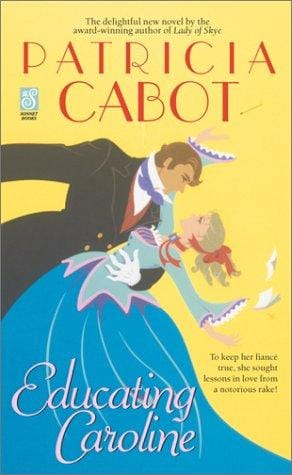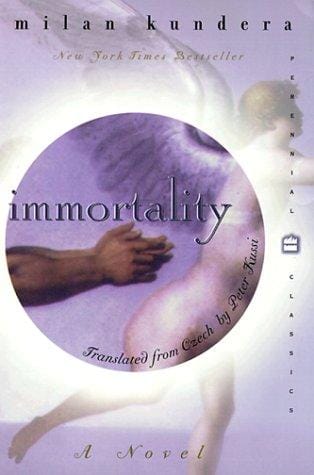Educating Caroline – A Fresh Look at Patricia Cabot’s Spirited Historical Romance
Discover why Patricia Cabot’s historical romance "Educating Caroline" still enchants readers with witty banter, empowering themes, and timeless Victorian charm.

Introduction: Why Revisit "Educating Caroline"?
First published in 1999 under the pen name Patricia Cabot, Meg Cabot’s Regency-era romance "Educating Caroline" continues to charm new readers who crave witty banter, sizzling chemistry, and a heroine determined to write her own destiny. More than two decades later, the novel still ranks on recommended reading lists for fans of Bridgerton-style stories, proof that its blend of humor, heartfelt emotion, and feminist undertones never gets old. This article offers an in-depth, spoiler-light tour of the book’s plot, themes, and enduring appeal, as well as tips on where to find editions and discussion questions for book clubs.
Plot Synopsis: A Deal of the Heart
Lady Caroline Linford, daughter of an earl and heir to a substantial fortune, seems to have everything a young woman in 1870s London could desire—except passion. When she accidentally witnesses her fiancé, the Marquess of Winchilsea, in a compromising embrace with another woman, she refuses to crumble. Instead, she hatches a daring plan: enlist notorious rake Braden Granville, a self-made firearms expert from the wrong side of the tracks, to teach her the art of seduction. Caroline’s objective is simple—win back her fiancé’s attention long enough to secure a respectable marriage for the sake of her family’s reputation. Yet every stolen kiss and clandestine lesson draws her closer to Braden, unveiling a chemistry neither of them predicted.
The arrangement sets the stage for a classic opposites-attract romance, peppered with ballroom scenes, carriage rides, and clandestine garden meetings. As Caroline learns to assert her desires, she discovers that society’s rules are as fragile as her engagement. Meanwhile, Braden must confront his own biases about the aristocracy and decide whether love is worth risking everything he has built.
Historical Setting: London on the Cusp of Change
Cabot situates the novel at a fascinating moment in British history, when industrial innovation was beginning to blur class boundaries. Braden’s rise from poverty to respected weapons designer reflects the era’s entrepreneurial spirit, while Caroline’s sheltered existence showcases the lingering grip of rigid social hierarchies. Their relationship allows readers to explore Victorian London through two contrasting lenses, highlighting issues of privilege, gender, and economic mobility without sacrificing the frothy pleasure of a romance plot.
Fashion, Etiquette, and Authentic Details
From silk ball gowns trimmed with seed pearls to the finer points of a proper quadrille, "Educating Caroline" delights historical-fiction aficionados who appreciate accurate period detail. Cabot’s research is evident in references to advancements in firearms, the etiquette of chaperoned visits, and real London landmarks such as Hyde Park and Hatchard’s Bookshop. These elements ground the narrative and give readers tangible anchors in a world that might otherwise feel purely escapist.
Key Themes: Education, Empowerment, and Self-Discovery
At its core, the novel is about more than romantic fulfillment; it’s about education in the broadest sense. Caroline’s lessons in seduction evolve into lessons in autonomy. Raised to be decorative and compliant, she discovers the power of informed choice—whether that involves her wardrobe, her fiancé, or her future. Braden, on the other hand, learns to trust emotional intimacy as much as his hard-earned independence. Their mutual schooling underscores one of Cabot’s favorite themes: true partnership requires growth on both sides.
Another notable theme is the critique of performative social virtue. The Marquess of Winchilsea embodies a double standard that still resonates today—men are forgiven for their transgressions if they possess title and charm, while women are judged by an impossible purity. "Educating Caroline" unpacks that hypocrisy with a light touch, using humor and romance to expose the cracks in Victorian moral code.
Character Analysis: A Heroine Ahead of Her Time
Caroline Linford begins the story as an obedient daughter, yet her quick wit and innate curiosity push her to question the status quo. Readers who love smart, proactive heroines will relish her transformation from genteel wallflower to confident woman capable of setting her own terms. She navigates tricky family dynamics, social gossip, and her own guilt with a relatability that feels distinctly modern.
Braden Granville, meanwhile, offers a refreshing twist on the brooding alpha hero. Yes, he’s protective and unapologetically masculine, but he never tries to dim Caroline’s light. Instead, he amplifies it, recognizing her potential long before she does. His backstory of hardship lends him depth, and his respect for Caroline’s agency turns their romance into a genuine meeting of equals.
Why "Educating Caroline" Still Captivates Readers
In a crowded field of historical romances, Cabot’s novel endures because it balances escapism with progressive messaging. The dialogue sparkles, the pacing is brisk, and the love scenes are steamy yet character-driven. Additionally, the book offers a gateway for readers who typically prefer contemporary romance. Cabot’s trademark humor softens the unfamiliarity of Victorian mores, making the time period accessible without diluting authenticity.
For longtime Cabot fans, "Educating Caroline" provides an intriguing glimpse at the author’s evolution. You can see the seeds of the witty, female-empowering narratives that later powered "The Princess Diaries" and her contemporary adult romances.
Reading Tips and Book-Club Questions
To fully appreciate the historical context, consider pairing the book with a brief primer on late-Victorian social customs. Audiobook lovers will enjoy Rosalyn Landor’s acclaimed narration, which captures both Caroline’s innocence and Braden’s dry humor. For book clubs, ask members to discuss which societal expectations from 19th-century London still persist today. Another fruitful prompt: How does Cabot use humor to critique classism and sexism?
Where to Buy or Borrow
Although "Educating Caroline" is officially out of print in some markets, used-book websites, library eBook apps, and second-hand retailers frequently stock it. An Italian-language edition titled "Caroline, insegnami" and a German edition "Ein unwiderstehlicher Gentleman" may be easier to locate for international readers. Keep an eye on digital-first publishers; rights reversion sometimes leads to surprise re-releases with updated covers.
Conclusion: A Romance That Teaches and Delights
"Educating Caroline" stands as a sparkling example of how historical romance can entertain while encouraging readers to question inherited norms. With its well-drawn characters, clever dialogue, and forward-thinking themes, the novel remains a must-read for anyone seeking both escapism and substance. Whether you’re discovering it for the first time or returning for a comfort reread, this spirited story proves that education—about love, power, and self-worth—is always in vogue.



